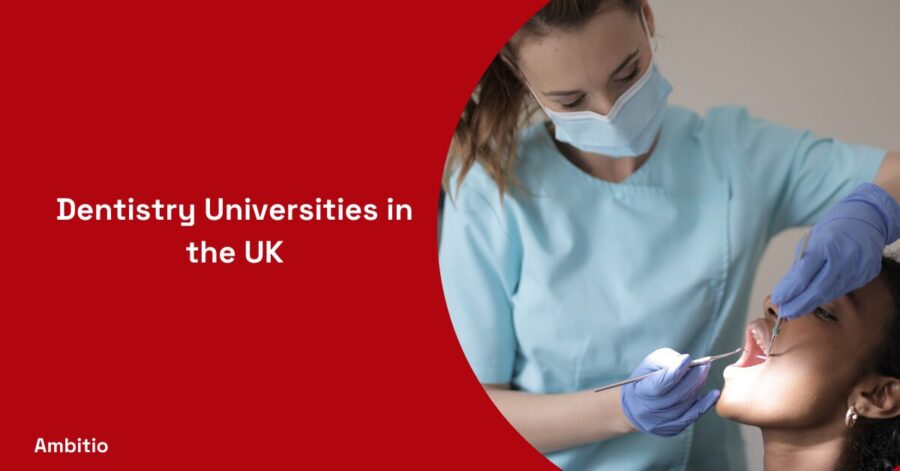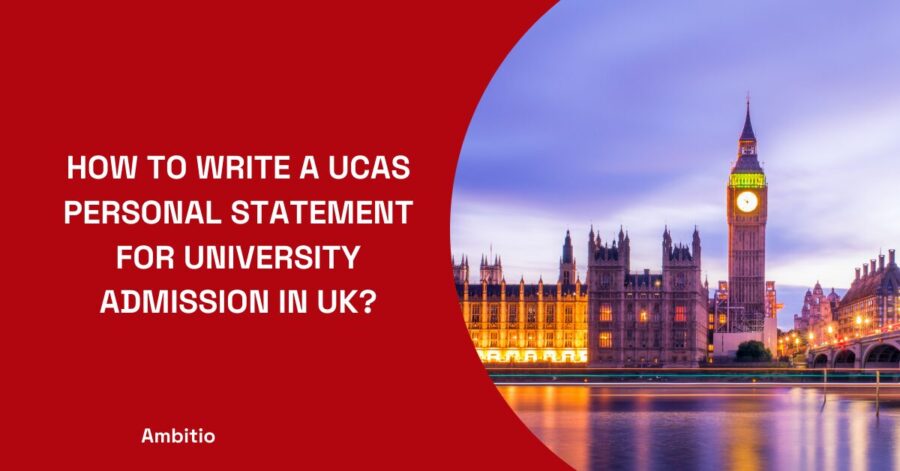12 December 2024
6 minutes read
Dentistry Universities in the UK: Entry Requirements and Opportunities for 2024 Entry

Embarking on a Career in Dentistry: Navigating Entry Requirements
Dentistry is more than a profession; it’s a calling to care for people’s oral health and overall well-being. The UK, renowned for its high-quality dental education, offers various opportunities through its esteemed universities like the University of Manchester and the University of Birmingham.
Aspiring dental students for the 2024 entry need to thoroughly understand the entry requirements to successfully embark on this rewarding journey.
Academic Excellence: The Cornerstone of Dentistry Education
A-Level and GCSE Requirements
For prospective students in the UK, A-Levels play a pivotal role in university admissions. Dentistry courses, particularly competitive ones like BDS Dentistry, usually require high grades in A-Levels, often AAA, with a focus on science subjects such as Chemistry and Biology.
Additionally, universities assess GCSE results, emphasizing strong performances in Maths, English, and Science. These academic credentials form the foundation of a student’s application, demonstrating their ability to handle the rigorous coursework in dental studies.
International Qualifications and Equivalency
International students face a unique set of challenges when applying to UK universities. They must ensure their qualifications are equivalent to the UK’s A-Level system.
This often involves a detailed evaluation process by the universities or through services like NARIC. Recognized qualifications like the International Baccalaureate are typically accepted, but it’s crucial for applicants to confirm their specific credentials’ acceptability.
The UCAT and Work Experience: Beyond Academics
The Importance of UCAT in Dental Admissions
The University Clinical Aptitude Test (UCAT) is a standardized test that assesses a range of abilities identified as important by university dental schools.
A high UCAT score can significantly bolster an application, demonstrating skills beyond academic knowledge, such as decision-making, situational judgment, and abstract reasoning. Preparing for and excelling in the UCAT is a crucial step for any aspiring dental student.
Valuing Work Experience in Dentistry
Work experience in a dental setting, whether it’s shadowing a dentist or volunteering at a dental clinic, is highly valued by admissions committees.
This experience not only gives students a real-world glimpse into their future profession but also shows their commitment and enthusiasm for dentistry. Universities often look for applicants who have taken the initiative to understand the practical aspects of dental work.
Catering to International Students: Specific Requirements and Support
Navigating International Entry Requirements
- Verify Qualification Equivalence: Ensure your international qualifications match the UK’s A-Level standards or are recognized as equivalent.
- English Language Proficiency: Most UK universities require a good score in English language proficiency tests like IELTS or TOEFL.
- Understand Specific University Criteria: Each university may have different requirements for international students, so research each institution’s specific criteria.
- UCAT for International Students: Be prepared to take the UCAT, which is often a requirement for dental courses, including for international applicants.
- Visa and Immigration Regulations: Familiarize yourself with the UK’s visa and immigration policies for international students.
- Financial Preparedness: Ensure you understand the tuition fees, living expenses, and financial support options available for international students.
- Health Insurance Requirements: Know the health insurance policies and requirements for international students studying in the UK.
- Cultural Adjustment: Be prepared for the cultural differences and adjustment to the UK education system and lifestyle.
- Use University Resources: Leverage the support services offered by universities for international students, including orientation programs and academic assistance.
- Contact Admissions Offices Directly: If uncertain about any requirements, directly contact the university’s admissions office for clarification and guidance.
- Plan Ahead for Accommodation: Research and secure suitable accommodation well in advance of your course start date.
- Networking with Current Students: Connect with current international students at the university to gain insights and tips.
- Documentation and Application Accuracy: Ensure your application and supporting documents are accurate and complete to avoid delays or rejection.
- Stay Informed about Policy Changes: Keep up to date with any changes in international student policies or entry requirements.
- Seek Assistance if Needed: Don’t hesitate to seek help from education consultants or advisors experienced in UK university admissions.
Support Systems for International Students in UK Universities
Upon acceptance, international students can access a range of support systems provided by UK universities. These include orientation programs, language support classes, and cultural assimilation activities.
Such support is crucial in ensuring international students can transition smoothly into their new academic and cultural environment.
Understanding Alternative Pathways and Special Considerations
Exploring Alternative Entry Routes
Not all dental students follow the traditional path of A-Levels and direct university entry. Some might enter through foundation courses, especially if they don’t meet the typical entry requirements.
Others might leverage their previous healthcare experience or qualifications in related fields. Understanding these alternative pathways can open doors for many prospective students who might not fit the conventional applicant profile.
Special Considerations in Dental Admissions
Universities also consider unique circumstances, such as applicants with disabilities, mature students, or those from underrepresented backgrounds. These considerations can include alternative testing arrangements, interviews to assess suitability for the course, and support throughout the study duration.
These inclusive practices ensure a diverse range of students have the opportunity to pursue a career in dentistry.
The Application Process: From UCAS to Interviews
Navigating the UCAS Application for Dentistry
The application to dental schools in the UK is primarily done through UCAS (Universities and Colleges Admissions Service). Prospective students must craft a compelling personal statement, list their qualifications, and often write about their work experience.
The UCAS application is the first step in showcasing one’s passion and suitability for a career in dentistry.
The Interview Process: Showcasing Your Potential
After successful UCAS applications, many universities invite candidates for interviews. These interviews are opportunities for applicants to demonstrate their communication skills, understanding of the dental profession, and how their experiences have prepared them for a career in dentistry.
Preparing for these interviews is as important as academic preparation, as they offer a chance to make a personal impression on the admissions panel.
Preparing for a Future in Dentistry: Resources and Tips for Success
Utilizing Resources for Dental School Applicants
Prospective dental students should utilize various resources, including university open days, dental career fairs, and online forums. Engaging with current students and faculty can provide invaluable insights into the dental course and life at the university.
Additionally, many online resources offer guidance on A-level choices, UCAT preparation, and writing personal statements.
Tips for a Successful Application
- Start Early: Begin preparing your application well in advance. This gives you ample time to gather all necessary documents, complete tests like the UCAT, and gain relevant work experience.
- Achieve Academic Excellence: Aim for high grades in your A-Levels or equivalent, focusing especially on science subjects like Biology and Chemistry. Remember, competitive courses like BDS Dentistry often require top grades.
- Excel in UCAT: Prepare thoroughly for the University Clinical Aptitude Test (UCAT). Utilize practice tests, prep courses, and study groups to enhance your performance in this critical exam.
- Gain Relevant Work Experience: Seek opportunities in dental settings such as shadowing a dentist or volunteering at a dental clinic. This experience is invaluable and demonstrates your commitment to the profession.
- Craft a Compelling Personal Statement: Your personal statement on your UCAS application should reflect your passion for dentistry. Highlight your experiences, skills, and why you are a suitable candidate for the course.
- Showcase Extracurricular Activities: Include extracurricular activities that demonstrate qualities like teamwork, leadership, and empathy. Universities look for well-rounded individuals.
- Research and Tailor Your Applications: Research each university’s dentistry program and tailor your application to their specific requirements and ethos. Highlight aspects of your background that align with their values and strengths.
- Prepare for Interviews: If invited for an interview, prepare thoroughly. Practice common interview questions, be ready to discuss your experiences and motivations, and show your understanding of the dental profession.
- Demonstrate a Clear Understanding of the Profession: Show that you have a realistic understanding of what a career in dentistry entails. This can be through work experience, reading, or speaking with practicing dentists.
- Seek Feedback and Guidance: Don’t hesitate to seek advice from teachers, career counselors, or dentists. Feedback on your application and personal statement can be invaluable.
- Keep Abreast of Current Issues in Dentistry: Stay informed about the latest developments in dentistry. This demonstrates your genuine interest in the field and can be a talking point in interviews.
- Be Aware of Alternative Entry Routes: If you don’t meet the standard entry requirements, explore alternative routes such as foundation courses or special entry programs for mature students.
- Stay Organized: Keep track of deadlines, documents required, and application procedures for each university you apply to. Being organized ensures that no critical elements are overlooked.
- Reflect on Your Motivation: Be clear about why you want to pursue dentistry. This clarity will not only strengthen your application but will also keep you motivated throughout the process.
- Practice Self-Care: The application process can be demanding. Remember to take care of your mental and physical health, ensuring you are in the best shape to pursue your dreams.
By following these tips, you can enhance your chances of success in securing a place in a dentistry course at a UK university. Remember, dedication, preparation, and a clear understanding of the profession are key to a successful application.
Conclusion
In conclusion, pursuing a career in dentistry through UK universities demands a combination of academic excellence, practical experience, and a deep understanding of the profession’s demands.
Whether it’s through the traditional route or alternative pathways, the journey to becoming a dentist is rigorous but immensely rewarding. This comprehensive guide aims to equip prospective dental students with the knowledge and resources needed to navigate the entry requirements and embark on a fulfilling career in dental healthcare.
FAQs
Q1: What are the GCSE requirements for dentistry courses in the UK?
Most dentistry courses require GCSEs in subjects like Maths, English, and Sciences, typically with a minimum grade of A or 7.
Q2: Can I apply for deferred entry for a dentistry course?
Yes, many universities allow deferred entry, but it’s best to check with the specific institution’s admissions office for their policy.
Q3: Is it mandatory to take the UCAT for dentistry courses in the UK?
Yes, the UCAT is a common requirement for most dentistry courses, including those at top universities like Manchester and Birmingham.
Q4: Are international qualifications accepted for entry into UK dental schools?
Yes, many UK dental schools accept international qualifications, but it’s important to check the equivalency and specific requirements of each university.

You can study at top universities worldwide!
Get expert tips and tricks to get into top universities with a free expert session.
Book Your Free 30-Minute Session Now! Book a call now




























